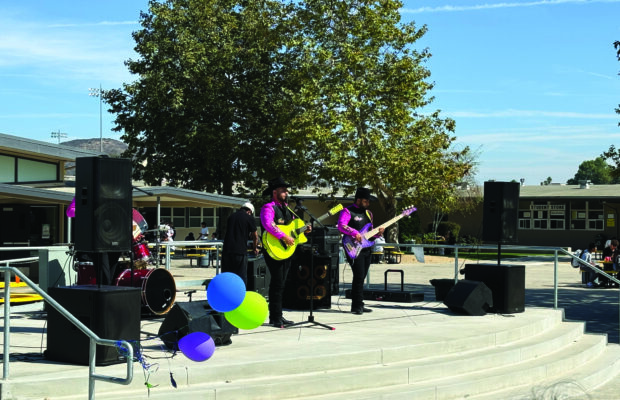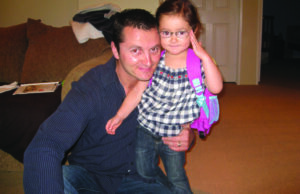DEI programs provide equitable opportunities for Americans

Introduction
Diversity, Equity and Inclusion [DEI] are three values forming an initiative aiming to foster supportive environments where opportunities are accessible and equitable and all perspectives are valued. Most DEI objectives focus on ensuring that everyone feels empowered by an environment filled with respect and support. DEI is not about filling a certain quota of minorities in the workforce but rather implementing programs to provide these groups equal opportunity to succeed through education. These initiatives include language programs, diversity training addressing topics of unconscious bias, microaggressions, cultural competency, specific hiring policies written within corporate handbooks and more.
In America
DEI initiatives have been present in the nation since the 1960s. They became standardized in companies through diverse recruitment processes and pay equity initiatives in 2020 as a result of the Black Lives Matter movement, which called for racial justice.
DEI is not synonymous with affirmative action, an act passed in 1965 to enforce more minority representation in employment. The misunderstanding between these initiatives led to the criticism of DEI policies. According to the National Law Review, affirmative action is a legal and policy-driven approach to inclusivity while hiring. Instead, DEI takes a broader approach by recognizing equity through providing opportunities rather than enforcing strict hiring policies. Affirmative action was banned in California in 1996 due to backlash from citizens who felt it caused bias against white people. According to the National Law Review, “Affirmative action relates to giving a preference to one over the other, even if the other is qualified. DEI is meant to impact a broader range of people and cultures by appreciating differences and encouraging deeper engagement.”
On March 18, President Donald Trump signed an executive order banning DEI from the federal government and foreign service, encouraging businesses and companies to remove their DEI initiatives. Furthermore, if the order is not followed, it threatens federal funding for such organizations. Therefore, the Los Angeles Times said that with the risk of losing funding, many education systems will suffer the loss of around “$16.3 billion per year in California — including money for school meals, students with disabilities and early education Head Start programs.” With this, the current administration brings uncertainty to whether any education will be supported in upcoming years.
In Ventura County
The Office of DEI in Ventura County states that it “is committed to supporting efforts to develop, nurture and sustain an equitable community and workforce where all individuals can thrive.” Formed in 2017, the DEI council has worked to fulfill its purpose, meeting monthly and providing “recommendations to County leadership on policies, programs and initiatives, while also serving as a link between all County of Ventura Agencies and the community.”
The DEI Manager for Youth Equity at the Ventura County Executive Office, Kate English, works with youth belonging to minority groups to instill a sense of belonging in the Ventura County community, noting the importance of equity for both adults and youth. English hosts free events open to underprivileged youth to offer a safe space to express and share their cultural identities, such as The Youth Volume Expo carnival on May 17. “They’re not having to hide parts of who they are. They’re not having to adjust how they eat or how they dress or how they talk,” English said.
English believes that with or without the title of DEI, the fundamental values it encompasses will always be a part of America, even if they have recently been challenged by the Trump Administration. “DEI is attached to the core ideas around democracy itself. The people should have a voice. We should be listening to everyone. We should make sure that it’s fair for everyone,” English said.
As Assistant Director of DEI at CVUSD, James Jenkins helps ensure the district values inclusion and promotes inclusive practices for all educational environments. Jenkins pursued this particular leadership role with the intention of making sure that any educational environment has every student, staff member and family feel valued. “The ability to directly impact policies, support underrepresented groups, and collaborate with others to shape a more equitable educational experience is a powerful motivator,” Jenkins said.
Jenkins believes that marginalization will persist in the community without DEI programs. “The district may miss out on the benefits that a diverse and inclusive environment brings, [such as] improved academic outcomes, better social-emotional development, and stronger community relationships,” Jenkins said.
As well as being integrated with the local community and school districts, the values of DEI are also reflected in the workplace. A2 Biotherapeutics, a biotech company focused on creating cell therapy to treat tumors, does not have an independent DEI program at this time, but Ada Yeh, Head of Human Resources [HR], details the governing principles of employment. “It is the responsibility and a measure of success if the HR Recruiter has a diverse slate of qualified candidates. We have our equal employment opportunity policy [which] states that we will not discriminate based on any protected class. It takes a village and a community to make a difference in the culture that is developed in a company,” Yeh said.
Yeh believes when DEI is implemented in certain ways, it can be perceived as unfair. “In situations of leadership roles, the final candidates should be equally qualified for the job. When companies hire based on ‘it’s the right thing to do in giving the opportunity to someone,’ it has the potential to be detrimental to the effectiveness of DEI efforts,” Yeh said.
In times of uncertainty, it may become increasingly difficult to maintain trust and equity within communities. Yeh speaks on behalf of her company to share the future she and her colleagues hope to shape. “We will maintain the same mindset with the same level of consciousness in trying to maintain and create a fair equal opportunity workplace. We will continue to stay curious and ask hard questions. We have no intention of changing our mindset or our efforts to have an equal opportunity environment,” Yeh said.
In CVUSD
The Conejo Valley Unified School District [CVUSD] prioritizes DEI and continuously updates the 2023-28 DEI Strategic Plan. Beyond the administrative level, DEI is also reflected in the inclusion of the African American District Advisory Council, the LGBTQ+ Advisory Council and the Student District Advisory Council [SDAC].
Lauren Gill, CVUSD board trustee, believes that equity is crucial to the CVUSD school district. “In our district, we pursue equity and excellence every day,” Gill said. Gill encourages students in the district who are facing discrimination regarding diversity to utilize resources such as programs like WeTip or notify the administration. “I hope that students who witness peers using derogatory language or slurs feel empowered to speak up,” Gill said.
The SDAC Student Board of Education Representative, Aidan Light, shared how DEI is about integrating equity in education. “Our goal is to provide exceptional educational experiences to every student every day, and that includes having a place where every student can be successful. This means ensuring equity for all students to have access to resources and programs that work for them,” Light said.
When students immigrate from foreign countries, Edith Cortes, guidance counselor at NPHS, assesses how long the particular student has been in the U.S. and then determines what type of classes they need to be enrolled in. NPHS is the school that these students are directed to, as NPHS is the only high school in the district that hosts the Newcomer Academy program. “I know that it is possible for students to achieve when given the right support, we’ve seen a lot of positive outcomes with hosting our Newcomer Academy,” Cortes said. “This year our teachers got trained in social-emotional learning, universal design for learning practices, and on diversity, equity and inclusion. Prioritizing those types of practices that will not only help not only our newcomer students and students that don’t have language access yet, but also everybody else.”
At NPHS
Administration
As a big contributor to non-English speaking students succeeding at NPHS, Cortes was motivated by her own experience of coming to the U.S. in eighth grade to always communicate to these students that they can and have the help they need to succeed. “I just hope that they know that anything that they want to do is possible if they work hard and that there’s a space for them,” Cortes said. “I hope they embrace the diversity, and I hope that they embrace how scary that transition [to the U.S.] can be, and that they seek out the opportunities that brought them to this country in the first place.”
Based on students’ different English-speaking abilities, they are placed into different levels within the Newcomers Academy. With these types of programs, the students are able “to be able to realize their dreams,” Cortes said. The objective is to get students ready for further opportunities post graduation and to unite everyone no matter what they look like or what language they speak.
Similarly, Christopher Soury, the ASG adviser at NPHS, explains that as a Hispanic alumnus of NPHS, he did not have the same opportunities during his time attending the school. He believes it is important for students to learn about various heritages and cultures through various events and clubs within the school. “When we recognize those different months of cultural appreciation, it brings a lot of pride out in me as well. So I just think it’s really important to do those things because you never know who it’s going to reach,” Soury said. Throughout the years, culture clubs and events have expanded throughout the school as more people discover and learn about them.
ASG hosts special events such as Fiesta Day in order to bring awareness to these cultures. “For the past two years, we hosted our lunchtime fiesta for Hispanic Heritage Month where we had a mariachi band come out with salsa and chips for students. Another one we did was for AAPI [Asian American Pacific Islander] month, where we did a cultural food giveaway. Our goal is to highlight aspects from different cultures to help show those students that their voices are heard and represented in our school community,” Soury said.
As an ethnic studies teacher, Matthew LaRocca aims to recognize diverse cultures in a way that develops a holistic perspective. “It’s very clear that there are several groups who have been systematically [unrepresented, and] their stories have been kept out of what we traditionally teach as history classes,” LaRocca said. LaRocca believes that through this class, students belonging to minority groups are able to see themselves reflected in the curriculum. Along with this, he feels the class is also beneficial to students belonging to the majority, as it fosters empathy and understanding through the study of different cultures.
Next school year, the ethnic studies class will become a graduation requirement for incoming freshmen. LaRocca emphasizes the importance of the course curriculum to students’ education. “If you are only including the narrative of the dominant group or one portion of people, you are not telling the entirety of the story and leaving a lot of truth out,” LaRocca said.
Due to the current funding risk that DEI initiatives are facing, LaRocca notes the potential benefit of the CVUSD board keeping these policies vague and instead highlighting overall goals. “There are a lot of different things going on in politics right now, and if our district is too explicit about DEI, there could be a possible loss in funding down the road. So maybe it’s better to not have those terms DEI set in stone or written down anywhere that’s valid,” LaRocca said.
Culture clubs
Through culture clubs and hiring practices, students and staff can express their cultures and personalities while in environments that welcome cultural expression and inclusivity on campus.
Cali Woomer, senior, is the Vice President of Newbury Park High School’s Asian Culture Club. Woomer shares how the culture club promotes DEI by encouraging individuals from all backgrounds to attend meetings, as the goal of the club is to inform the student body about cultures they may not be aware of. “This club is important for the student body as it emphasizes the importance of diversity, teaching others about new cultures and traditions while promoting a safe place to embrace one’s heritage,” Woomer said.
Julieta Aguilar-Rodriguez, advisor of NPHS Latino Connections Club and Spanish teacher on campus, notes that their club works to educate the community on what the true meaning of Latino is. By working with the Associated Student Government [ASG], the Latino Connections Club assists in planning Hispanic Heritage Month activities to share about Latino culture. “We’re not just limiting the club to students who have Latino background, more of anyone that’s interested in learning more about the Latino culture, or even just any student that wishes to practice more Spanish. That would be a great opportunity for them,” Aguilar-Rodriguez said.
Brelyn McCants, sophomore, has been a member of the Black Student Union [BSU] for two years. The goal of the BSU club is to ensure everyone has a place where they feel included and accepted, no matter their background. “We are one of the main components of the diversity of the school. We really just want equity for everyone, [however] especially for black students, just getting the same amount poured into them as [is done for] all other students of other races,” McCants said.
Conclusion
Though the title of DEI is being challenged under Trump’s Administration, the CVUSD district and many local companies strive to continue implementing the values of diversity, equity and inclusion, aiming to make Ventura County a welcoming environment for citizens coming from all backgrounds “DEI grows out of a long trajectory of work that has been done in our nation to make things more fair, more equal, and give people more rights and liberties,” English said.



